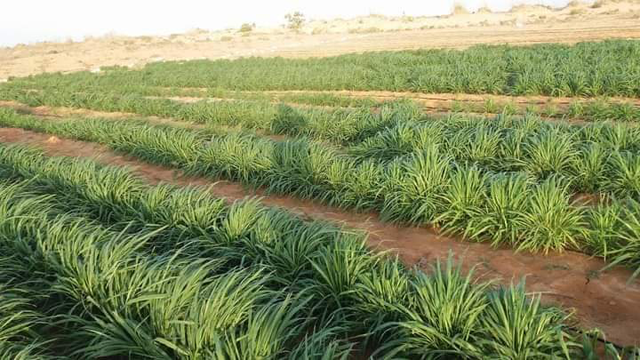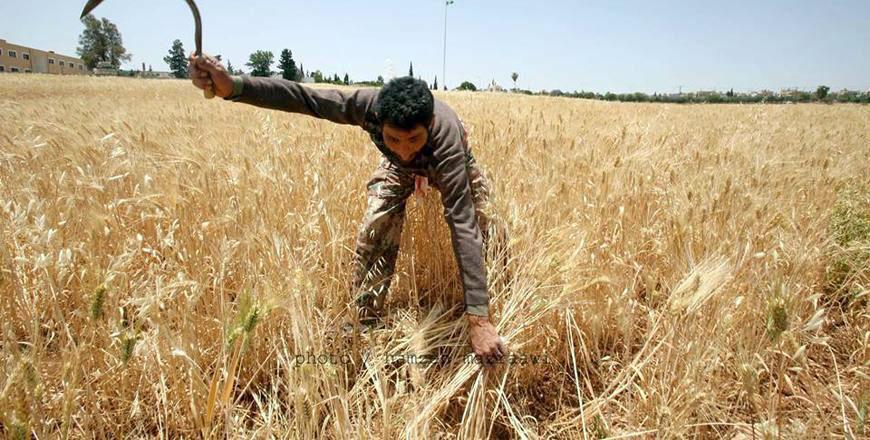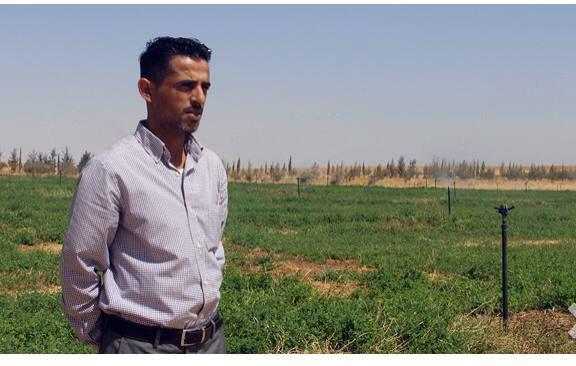You are here
Using treated water for fodder irrigation bears fruit in Karak
By Rayya Al Muheisen - Sep 20,2023 - Last updated at Sep 20,2023

In a move towards sustainable agriculture, numerous farmers in Karak are now reaping the benefits of using treated water for fodder irrigation (Photo courtesy of Ahmed Shahadeh Facebook page)
AMMAN — In a move towards sustainable agriculture, numerous farmers in Karak are now reaping the benefits of using treated water for fodder irrigation, according to officials.
This approach not only guarantees a consistent supply of green fodder for livestock but also opens new streams of income and cuts costs for farmers.
Traditional rain-dependent farming is high-risk, with the unpredictability of rainfall frequently resulting in crop failures and deteriorating livestock health.
In looking for a solution, Mohammad Al Shahem turned his attention to a local initiative aimed at repurposing treated sewage water for agricultural use in Karak and recently took the same initiative to Jerash.
“When I first heard about using treated water for irrigation, I was sceptical,” Shahem told The Jordan Times.
However, after extensive research and consultations with experts, he discovered that treated water offers more nutrients to plants than regular drinking water.
“Not only did my cattle benefit from the nutritious fodder, but I also saw an opportunity to sell the fodder and generate income,” he added.
The cost-effectiveness of this method was another advantage for Shahem. With treated water readily available, he eliminated the need for costly fertilisers that had previously eroded his profits.
Musab Al Tarawneh, director of agriculture in Karak, 140km south of Amman, underscored the ecological significance of this initiative, highlighting its contribution to conserving water resources while promoting sustainable agriculture.
“More and more farmers are adopting this practice, harnessing the potential of treated water to safeguard their future,” Tarawneh told The Jordan Times.
The cultivated land area has now exceeded 700 dunums and is situated along the sides of a valley near the purification station, where the treated water is discharged, Tarawneh said.
Tarawneh added that the cultivation not only provides substantial amounts of green fodder for the numerous livestock in the region but also includes the harvesting of barley crops sold to the field crop reception centre.
Tarawneh confirmed that the process of cultivating fodder crops and irrigating them with treated sewage water has proven to be beneficial for cattle breeders and farmers.
“There are currently big areas under cultivation, with expectations of further expansion in the coming years,” Tarawneh said.
The area of land cultivated with fodder barley extends to approximately 500 dunums, with other areas dedicated to fodder clover cultivation, Tarawneh said.
He affirmed that these areas have produced a substantial yield, with some serving as livestock feed and others delivered to the field crop reception centre in quantities of approximately 112 tonnes of barley.
Furthermore, there is the added benefit of fodder material produced after barley harvest, which includes straw.
“These crops have provided a solid income for cattle breeders and farmers through the sale of fodder crops grown in their fields, including barley and clover,” Tarawneh said.
A source at the water purifying directorate in Karak told The Jordan Times that treated water is extremely safe for irrigation.
“Treated water can be used for all types of irrigation, including vegetables, fruits and fodder,” the source said.
The source added that the water is regularly tested to ensure that treated water meets established safety standards.
Related Articles
AMMAN — Minister of Agriculture Khaled Hneifat on Monday announced that the ministry intends to expand wheat and barley cultivation in the K
AMMAN — It is not a secret that Jordan suffers from water scarcity; more so with the change in climate and rainfall fluctuations over the pa
AMMAN — Prime Minister Hani Mulki on Wednesday inaugurated a wastewater treatment plant in south Amman to irrigate crops. The opening o

















